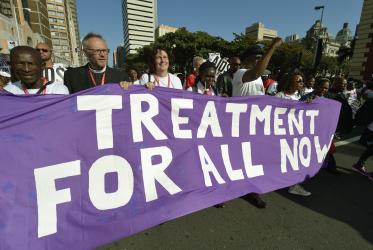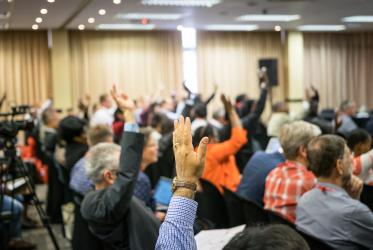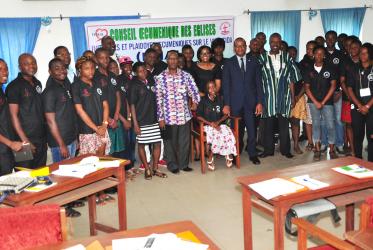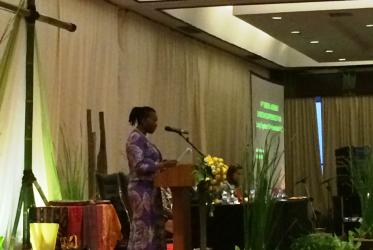Displaying 81 - 100 of 120
Plans for 2017 decided by WCC Executive Committee
01 December 2016
Kenya: Voice of faith communities crucial in overcoming HIV
14 October 2016
Tveit offers input at religion and development meeting
03 October 2016
Voices from HIV workshop reflect deep impact
07 April 2016
WCC/UN conference calls for coordinated action on refugee crisis
20 January 2016
Placing family in the HIV response vanguard
10 December 2015
WCC group evaluates ecumenical HIV and AIDS response
29 June 2015
Churches have a special role to play in HIV response
18 November 2014









